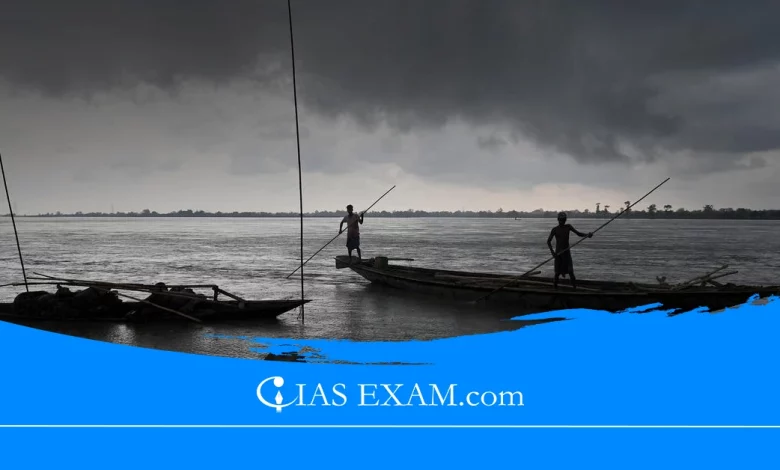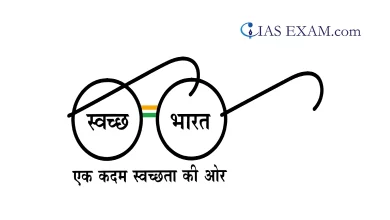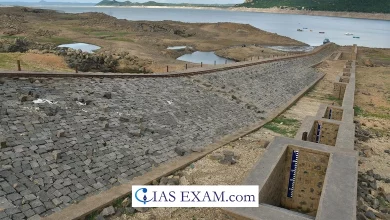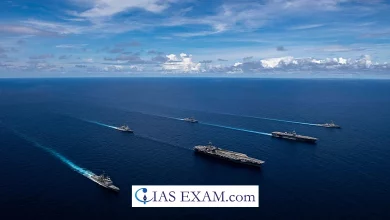Navigating the Global Waterscape and its Challenges
GS Paper 3 - Conservation, Environmental Pollution & Degradation

Context
The global challenge for securing access to clean water persists for about two billion people and its demand keeps rising. Beyond threatening our basic individual human needs, this scarcity also poses a risk to our collective prosperity and peace. Therefore it is important to analyze the complexities of water scarcity, historical conflicts over water resources, the importance of water diplomacy, and the need for transboundary cooperation to ensure sustainable water management.
Historical Context of Water Conflicts
- Throughout history, water has stood as a crucial asset for some of humanity’s most significant civilizations, exemplified by those flourishing along the banks of the Indus, the Nile, and the Tigris-Euphrates.
- However, these civilisations also witnessed conflicts stemming from this vital resource, as evidenced by the well-documented disputes between Mesopotamian cities like Lagash and Umma.
- Remarkably, this historical event also produced what is recognised as the world’s inaugural peace accord, known as the Treaty of Mesilim, marking one of humanity’s earliest legal agreements.
Water diplomacy in a time of extremities
- Climate Crisis Impact: Meteorological extremities like heat waves and floods exacerbate concerns about the climate crisis. In India, erratic monsoons affect agriculture, crucial for the $3 trillion economy.
- Need for Improved Cooperation: Amid climate change pressures, fostering cooperation over water-sharing and embracing universal principles of International Water Law is imperative.
- Water Diplomacy: Effective governance of shared waters and sustainable water use are essential for better water diplomacy, promoting peace and stability regionally and internationally.
- Collaborative Governance: Collaborative governance ensures equitable water allocation among nations, fostering regional stability and peace.
- Inclusive Approaches: Water diplomacy should include indigenous and local communities’ cross-border networks and involve civil society and academic networks to prevent, mitigate, and resolve water-related disputes.
- Water Quality Data Shortage: There’s a general shortage of water quality data globally, with a significant urban-rural divide, highlighting the need for better access to basic drinking water services, particularly in rural areas.
Meeting needs of Rural India
70% of India’s rural population relies on water for household activities, with agriculture being the primary livelihood source. Globally, agriculture accounts for 70% of freshwater use.
- Water Accessibility: Improved water accessibility in rural areas can lead to positive outcomes in health, education, employment, and basic human needs and dignity.
- Water Investments: Increased water investments in rural areas can yield positive outcomes across various sectors, benefiting communities in multiple ways.
- AI Technology in Agriculture: AI can help tackle crop and food loss, minimize chemical and fertilizer usage, and optimize water usage for sustainable and productive outputs.
- Community Participation – Engaging local communities in the planning, implementation and management of water projects is critical for ensuring their sustainability and success.
- Government Support and Policy Intervention – This includes allocating funds for water infrastructure projects, implementing regulatory frameworks to ensure equitable water distribution and enacting legislation to protect water resources and promote sustainable water management practices.
Challenges with Tran-boundary Waters
- Water Pollution: Transboundary rivers like the Meghna, Brahmaputra, Ganga, and Indus are experiencing worsening water pollution, posing significant environmental and health risks to communities relying on these water sources.
- Lack of Governance: There is a need for sophisticated cross-border water governance to address issues related to equitable water allocation, pollution control, and sustainable management of shared water resources among neighboring countries.
- Cooperation Challenges: Despite the importance of transboundary water cooperation, many countries face challenges in reaching agreements and implementing effective mechanisms for managing shared water resources. Disputes over water usage, infrastructure development, and environmental impacts hinder cooperation efforts.
- Sustainable Development Goals (SDGs): Transboundary water management is crucial for achieving the SDGs, particularly Goal 6 (Clean Water and Sanitation). However, inadequate cooperation and governance frameworks pose obstacles to fulfilling SDG targets related to water security, environmental sustainability, and poverty alleviation.
- Peace and Security: Scarcity of freshwater in transboundary river basins can exacerbate tensions and conflicts among riparian states. Effective management and cooperation on shared water resources are essential for promoting regional stability and preventing water-related conflicts.
Conclusion
Navigating the complexities of the global waterscape requires a multifaceted approach that addresses geopolitical, economic, environmental, and security considerations. By understanding the challenges and opportunities presented by the global waterscape, nations can work together to promote cooperation, foster stability, and ensure sustainable development in maritime regions. Through water diplomacy, inclusive governance, and transboundary cooperation, nations can mitigate conflicts, ensure sustainable water management, and achieve the Sustainable Development Goals.
SOURCE: The Hindu





.png)



